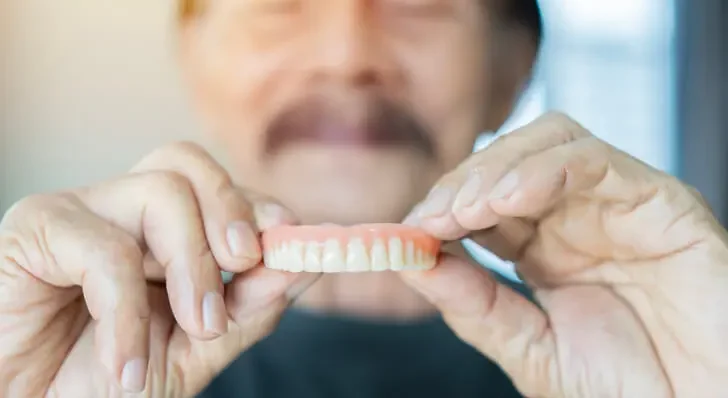Improvements in dental care, increased longevity, and the value placed on a healthy smile have allowed people to retain their natural teeth longer. However, this trend has also led to a growing need for restorative treatments like crowns, bridges, and implants. Many cannot access these treatments due to limited availability of NHS dentists and the high cost of private dental work, making removable dentures the only viable option for an estimated 10 to 15 percent of the population.
A new study by the University of Sheffield’s Healthy Life Span Institute and the School of Clinical Dentistry has revealed the emotional struggles and hidden challenges faced by patients when getting dentures. This study is the first to map the patient journey, highlighting how this experience impacts the success of the treatment.
Table of Contents
ToggleStages in The Denture Journey
Researchers identified four stages in the denture journey:
- Tooth Loss: The initial stage of experiencing physical tooth loss.
- The Emotional Tunnel: The emotional rollercoaster following tooth loss, where patients feel self-conscious, depressed, and struggle with dentures, experiencing emotions like shame, anger, fear, and hope.
- Prosthetic Hope: The stage of hope and optimism as patients anticipate regaining their smile and eating abilities with dentures.
- Prosthetic Compromise and Managing Disclosure: The final stage where patients adjust to dentures, managing expectations and learning to talk and eat comfortably, while developing strategies to disclose their denture use to others.
These emotional stages significantly influence patient outcomes, emphasizing the importance of empathy from dentists during the adjustment period.
Study reveals hidden challenges of tooth loss and dentures
The study also highlighted that wearing removable dentures can be a hidden disability. Many denture wearers feel embarrassed or fear their dentures might fall out, leading some to avoid social situations.
Lead researcher Barry Gibson, Professor in Medical Sociology at the University of Sheffield, noted the traumatic nature of tooth loss and the significant emotional challenges of needing partial dentures. Ill-fitting dentures can make speaking, eating, and drinking difficult, dramatically impacting a person’s quality of life and confidence.
The research team collaborated with Sheffield artist Gina Allen to create an art piece reflecting the diverse emotional journeys of denture wearers. This collage uses color to depict individual experiences, illustrating that each patient’s journey and outcome are unique.
Allen explained that her artwork aimed to visually convey the variety of experiences captured by the research team, using art to explore and interpret data in an engaging and meaningful way.
This collaboration has led to the development of a new patient questionnaire designed to:
- Identify Individual Needs: Tailor care based on specific patient experiences.
- Improve Communication: Facilitate open conversations between dentists and patients about dentures.
- Trigger Follow-Up: Identify patients needing additional support.
The study also underscores the need for a clinical care pathway to improve patient support, focusing on better denture fit, patient education, and combating the stigma associated with dentures. Mr. Bilal El-Dhuwaib, Clinical Teacher in Restorative Dentistry at the University of Sheffield, emphasized the importance of understanding the psychological and social impacts of tooth loss and replacement to provide better care.
The research team is seeking further funding to validate the questionnaire and develop a comprehensive clinical pathway for denture care, aiming to improve patient outcomes and address the hidden struggles faced by denture wearers.
This study, published in The Journal of Dentistry, was funded by consumer health company Haleon.

